Investing in pool heating is a fantastic way to stretch out your swimming season and make your pool more enjoyable in general. There are a few options available, and two of the more popular pool heating options include solar heating and an electric heat pump. If you're like many others, cost efficiency is of high importance, so which one is more cost-effective? In this post, we'll answer that question and more.
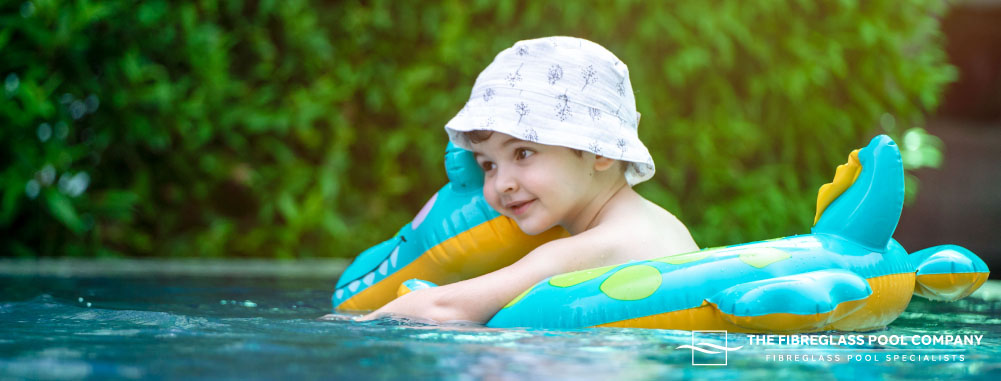
Firstly, Let's Take A Look At Solar:
Solar
Solar is the go-to for many primarily due to its economical running costs and low impact on the environment. It’s typically cheaper to install also. Solar pool heating works by pumping cold water from the pool up to the roof, where a series of tubes are installed. These heat up from the sun, and as the cool water passes through these hot tubes, it heats up as it goes. This now warmed water will be pumped back to the pool at a raised temperature. The process continues until the pool reaches your desired temperature.
Over the years, solar tubes have been known to be damaged by hail or birds however, modern-day tubing is much more resilient and withstands the toughest of conditions.
One of the main drawbacks to solar heating is that it is solely dependent on the sun to work. So on days that are cloudy, rainy or in the cooler months, your solar pool heating may not have enough sun exposure to be able to heat the pool enough to go swimming.
If you live in a cooler climate, you may find that solar heating alone doesn’t cut the mustard and simply isn’t warming the pool enough.
If this is the case for you, it doesn’t mean that you should for-go solar altogether, but if you want to swim year-round as much as you can, it may be worth looking at an alternative heater that warms regardless of how much sun is about.
The same applies if your roof is covered by constant shade for a good part of the day, the system is unlikely to make much difference to the temperature of the water.
Solar is inexpensive once set up and ensures that you can heat the water up without worrying about how much it’s going to add to your energy bill each quarter. If your home gets plenty of sun or you live in a warmer climate, solar is a great way to add warmth to your pool for less.
When it comes to maintenance, solar heating systems need next to no attention over their lifespan, and you can expect your system to last for more than 15 years.
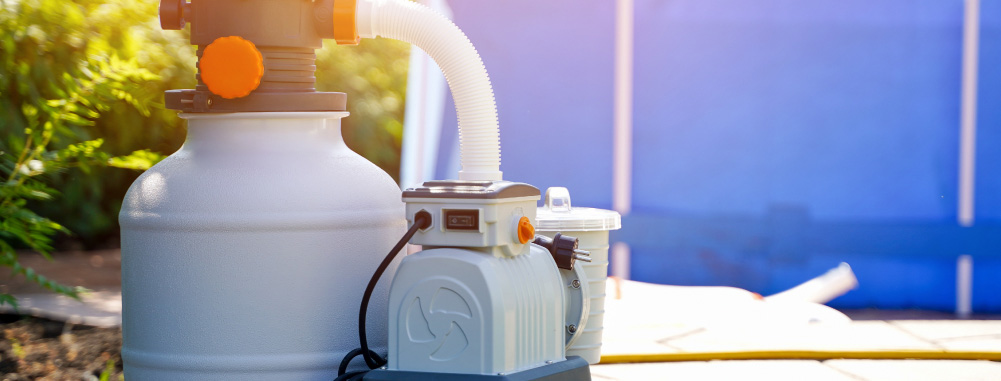
Electric Heating
Let’s move on to the next option, electric heat pumps. Electric heat pumps are generally more expensive to install and run. This is how they work:
Cold water is pumped from the pool to the heat pump via the pool pump, the fan on the unit draws in air from outside, and the evaporator coils inside the heat pump extract the heat from the air. This then extracted heat is used to warm the coils. The pool water passes through a heat exchanger where the coils are housed, and as it does, it heats the water. It is sent back to the pool at a raised temperature, and the process repeats.
While electric heat pumps do use more energy than solar, they use far less than alternative heating options such as gas.
The advantage of electric heat pumps is that they are more dependable than solar as they don’t rely on the sun to function. Even in winter, they can extract heat from the air to heat your pool. They also work much faster than solar, meaning you can heat your pool quicker. If you have solar panels on your roof, you may not notice much difference to your electricity bill. Many decide to choose an electric heat pump when they have solar as they are much more efficient and enable you to warm the water whenever you want to use the pool, regardless of the time of year.
Electric heat pumps last for around ten years, and they do need some attention from time to time to ensure they are working at their best. You can refer to your user manual for guidance on how to do this, or you can speak to a professional who can come out to do it for you if you prefer.
Why Should I Consider Heating For My Pool?
Have Pool Parties Year-Round
Winter pool parties are not typically a regular occurrence however, with pool heating, they can be.
Swim Into The Night
Even when the weather is warmer, there usually comes a point when the sun starts to go down, and you start getting cold while in the pool. Heating allows you to swim well into the night if you desire.
Enhance Your Relaxing
If you want to jump in the pool to soak and soothe tired and achy muscles, increasing the temperature of the water can take your relaxation to the next level. Submerging in warm water has many health benefits including alleviating stress and reducing pain.
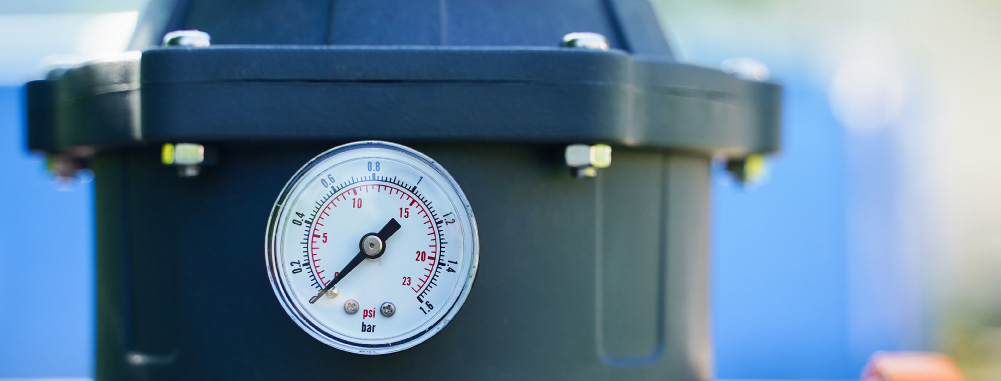
Choosing The Right Heating System
Everyone has different priorities when deciding to get heating for their pool. Some don’t mind the extra costs associated with running an electric heat pump as they know it will work on cue, whereas others would rather save money on their energy bills or make a more conscious decision for the environment by choosing solar.
Both are great options and will make swimming year-round much more enjoyable. If you have spa jets or you simply want to soak in warm water from time to time, then heating your pool is a smart idea. Whether you have solar panels combined with an electric heat pump, or a solar heating system, once you have paid for the initial installation costs, your running costs can be very minimal which makes it a worthwhile investment. Pool heating is no longer a luxury item, and it can be very economical.
Conclusion
If you don’t have a pool yet, but you’re looking at getting one, contact the fibreglass pool professionals here at The Fibreglass Pool Company for more information.
Investing in pool heating is a fantastic way to stretch out your swimming season and make your pool more enjoyable in general. There are a few options available, and two of the more popular pool heating options include solar heating and an electric heat pump. If you're like many others, cost efficiency is of high importance, so which one is more cost-effective? In this post, we'll answer that question and more.
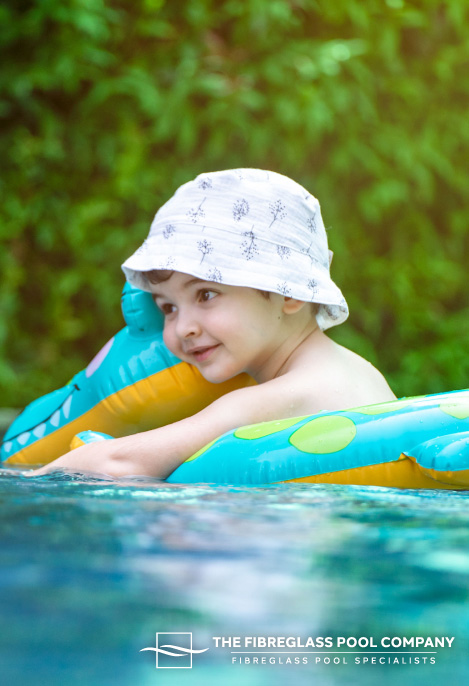
Firstly, Let's Take A Look At Solar:
Solar
Solar is the go-to for many primarily due to its economical running costs and low impact on the environment. It’s typically cheaper to install also. Solar pool heating works by pumping cold water from the pool up to the roof, where a series of tubes are installed. These heat up from the sun, and as the cool water passes through these hot tubes, it heats up as it goes. This now warmed water will be pumped back to the pool at a raised temperature. The process continues until the pool reaches your desired temperature.
Over the years, solar tubes have been known to be damaged by hail or birds however, modern-day tubing is much more resilient and withstands the toughest of conditions.
One of the main drawbacks to solar heating is that it is solely dependent on the sun to work. So on days that are cloudy, rainy or in the cooler months, your solar pool heating may not have enough sun exposure to be able to heat the pool enough to go swimming.
If you live in a cooler climate, you may find that solar heating alone doesn’t cut the mustard and simply isn’t warming the pool enough.
If this is the case for you, it doesn’t mean that you should for-go solar altogether, but if you want to swim year-round as much as you can, it may be worth looking at an alternative heater that warms regardless of how much sun is about.
The same applies if your roof is covered by constant shade for a good part of the day, the system is unlikely to make much difference to the temperature of the water.
Solar is inexpensive once set up and ensures that you can heat the water up without worrying about how much it’s going to add to your energy bill each quarter. If your home gets plenty of sun or you live in a warmer climate, solar is a great way to add warmth to your pool for less.
When it comes to maintenance, solar heating systems need next to no attention over their lifespan, and you can expect your system to last for more than 15 years.
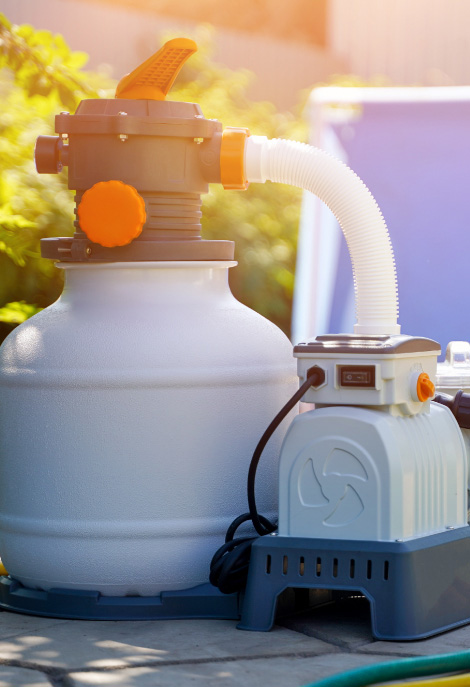
Electric Heating
Let’s move on to the next option, electric heat pumps. Electric heat pumps are generally more expensive to install and run. This is how they work:
Cold water is pumped from the pool to the heat pump via the pool pump, the fan on the unit draws in air from outside, and the evaporator coils inside the heat pump extract the heat from the air. This then extracted heat is used to warm the coils. The pool water passes through a heat exchanger where the coils are housed, and as it does, it heats the water. It is sent back to the pool at a raised temperature, and the process repeats.
While electric heat pumps do use more energy than solar, they use far less than alternative heating options such as gas.
The advantage of electric heat pumps is that they are more dependable than solar as they don’t rely on the sun to function. Even in winter, they can extract heat from the air to heat your pool. They also work much faster than solar, meaning you can heat your pool quicker. If you have solar panels on your roof, you may not notice much difference to your electricity bill. Many decide to choose an electric heat pump when they have solar as they are much more efficient and enable you to warm the water whenever you want to use the pool, regardless of the time of year.
Electric heat pumps last for around ten years, and they do need some attention from time to time to ensure they are working at their best. You can refer to your user manual for guidance on how to do this, or you can speak to a professional who can come out to do it for you if you prefer.
Why Should I Consider Heating For My Pool?
Have Pool Parties Year-Round
Winter pool parties are not typically a regular occurrence however, with pool heating, they can be.
Swim Into The Night
Even when the weather is warmer, there usually comes a point when the sun starts to go down, and you start getting cold while in the pool. Heating allows you to swim well into the night if you desire.
Enhance Your Relaxing
If you want to jump in the pool to soak and soothe tired and achy muscles, increasing the temperature of the water can take your relaxation to the next level. Submerging in warm water has many health benefits including alleviating stress and reducing pain.
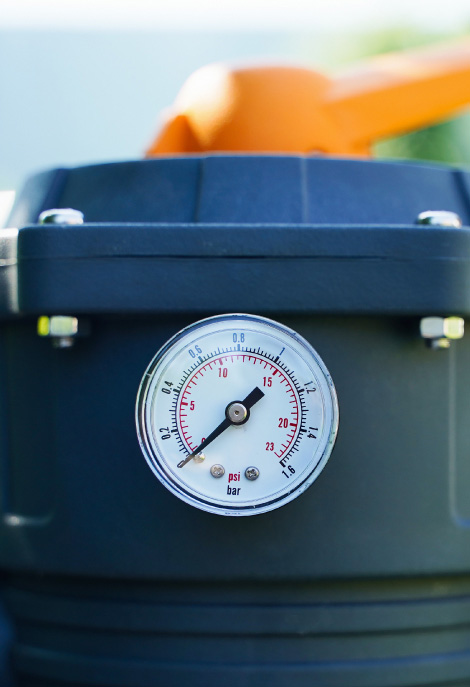
Choosing The Right Heating System
Everyone has different priorities when deciding to get heating for their pool. Some don’t mind the extra costs associated with running an electric heat pump as they know it will work on cue, whereas others would rather save money on their energy bills or make a more conscious decision for the environment by choosing solar.
Both are great options and will make swimming year-round much more enjoyable. If you have spa jets or you simply want to soak in warm water from time to time, then heating your pool is a smart idea. Whether you have solar panels combined with an electric heat pump, or a solar heating system, once you have paid for the initial installation costs, your running costs can be very minimal which makes it a worthwhile investment. Pool heating is no longer a luxury item, and it can be very economical.
Conclusion
If you don’t have a pool yet, but you’re looking at getting one, contact the fibreglass pool professionals here at The Fibreglass Pool Company for more information.


